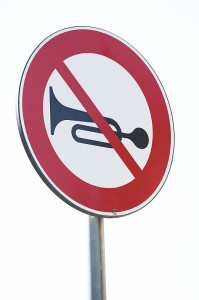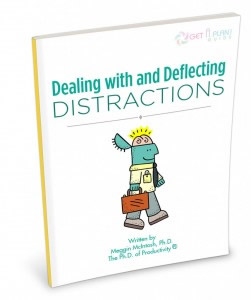Distractions in the Office by Denise Landers
 Thanks to special guest this week, Denise Landers, for allowing me to share this article with you. Read more about her at the end of the article. What comes to mind when you are think about office distractions? The most common ones cited are the telephone, email, and paper. Of themselves, those are enough to overwhelm a person each day. However there are other distractions causing you to lose valuable, productive minutes every day. Some of these you may not think of as a distraction at first. Yet anything that takes your focus away from your work at hand can be a problem. Consider how your office setting ranks for the following:
Thanks to special guest this week, Denise Landers, for allowing me to share this article with you. Read more about her at the end of the article. What comes to mind when you are think about office distractions? The most common ones cited are the telephone, email, and paper. Of themselves, those are enough to overwhelm a person each day. However there are other distractions causing you to lose valuable, productive minutes every day. Some of these you may not think of as a distraction at first. Yet anything that takes your focus away from your work at hand can be a problem. Consider how your office setting ranks for the following:
-
Email. There are two main problems that pop up. One is the constant alert for new messages, which you can choose to turn off. The second is if your inbox is never emptied. You will continually scroll through all of the items because you are fearful of overlooking something. You need to find a system of folders that let you clear out the general inbox and prioritize your action items.
-
Telephone. Do you feel you have to answer every call right when it comes in? Set aside time blocks to deal with non-urgent calls, and let your voice mail tell callers when they can expect to hear from you.
-
Paper. If you have stacks of papers around your desk, you will shift through them frequently to find the urgent items of the day. Instead set up Daily Action folders, make a decision on the needed action the first time you look at it, and keep your desk cleared of distracting stacks.
-
Visitors. Clients may drop by without notice or a colleague may have a break and decide to take it in your space. Get to the point quickly if someone comes by and interrupts your work.
-
Environment. This can include heating and lighting. If you are too cold or too hot, you are constantly reflecting on how uncomfortable you are. The lighting in an office can create glare, leading to headaches and tired eyes, causing you to stop frequently. There is no one answer for the right temperature or light situation. You need to find the correct level for yourself.
-
Noise. Overhearing colleagues’ discussions, one-sided telephone conversations, or outside activities diverts your concentration. If you are easily distracted, close your door, use a small white noise machines, or try headphones.
-
Meetings. In a work environment where meetings are frequent, it becomes difficult to set aside an uninterrupted block of time for detailed projects. You end up coming in early or staying late so that you can finally get things done. Make sure that you have scheduled time to focus on projects during the day. It needs to be written on your calendar.
-
Lists. Working from lengthy lists, whether ToDos, a book of voice mail messages, or an email inbox, causes you to look at the same items again and again. You have to make decisions every time you scan through the items. Your mind keeps jumping around and planning ahead instead of focusing on one item in front of you. Write down tasks on single sheets of paper so that you can easily prioritize your work.
-
Expectations. What response time has unofficially developed with regard to returning phone calls and email messages? When you feel you have to immediately respond to a call, you allow yourself to constantly be interrupted. Could a 3-minute response time be changed, letting people know you will respond within two hours or four hours?
-
You. Often you may become bored with your activity and decide to check email for a few minutes; or you have several projects in view and your mind keeps jumping from one to the other. Work with only one project on your desk at a time. If you momentarily lose focus, do not give up, just try to get back on track.
The first step in limiting distractions is to be aware of them. You may be able to add more things to this beginning list. Once you recognize what interferes with you work, then you can begin to make the changes that will add to your daily productivity. Thanks again, Denise, for this great article!!
©Key Organization Systems, Inc. 2007 Denise Landers is the author of Destination: Organization and the owner of Key Organization Systems, Inc. She provides group training and individual assistance to improve daily work flow and time management skills. Visit Denise’s website to learn more: www.keyorganization.com.
 If you liked these writing tips, you may be interested in the Get a Plan! Guide® for Dealing with and Deflecting Distractions. It’s specially designed so you can accomplish your goals more smoothly (i.e., peacefully, productively, and predictably). You’ll learn ways to take stock of your distractions, along with 6 means to eliminate – or at the very least, minimize – those distractions. I promise that you will have a plan that you can implement starting today.
If you liked these writing tips, you may be interested in the Get a Plan! Guide® for Dealing with and Deflecting Distractions. It’s specially designed so you can accomplish your goals more smoothly (i.e., peacefully, productively, and predictably). You’ll learn ways to take stock of your distractions, along with 6 means to eliminate – or at the very least, minimize – those distractions. I promise that you will have a plan that you can implement starting today.




